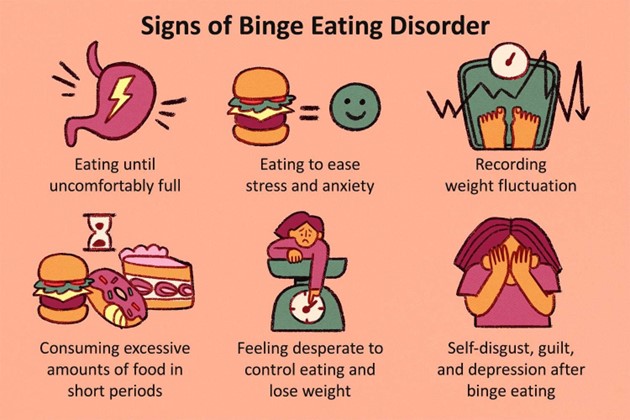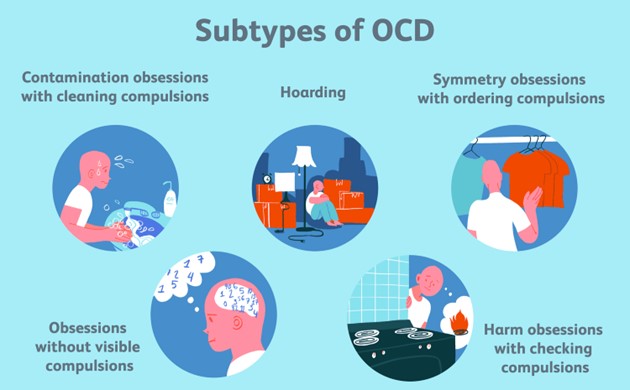A nurse is discussing comorbidities associated with eating disorders with a newly licensed nurse.
Which of the following comorbidities should the nurse include in the discussion? (Select all that apply.)
Depression
Anxiety
Breathing-related sleep disorder
Obsessive-compulsive disorder
Schizophrenia
Correct Answer : A,B,D
A nurse discussing comorbidities associated with eating disorders with a newly licensed nurse should include depression, anxiety, and obsessive-compulsive disorder (OCD) in the discussion. Clients who have eating disorders often have comorbid psychiatric conditions.

Depression and anxiety are two common conditions among clients with eating disorders. OCD is another condition that is often associated with eating disorders. Clients with OCD may have obsessive thoughts about food intake, weight, and body image. These clients may also engage in compulsive behaviors related to eating, such as calorie counting or food restriction. Options C and E are incorrect because breathing-related sleep disorders and schizophrenia are not typically associated with eating disorders.
Nursing Test Bank
Naxlex Comprehensive Predictor Exams
Related Questions
Correct Answer is A
Explanation
As clients with obsessive-compulsive disorder (OCD) often demonstrate repetitive behaviors to decrease anxiety. Cleaning or other repetitive behaviors help the client with OCD to cope with their anxiety by providing a sense of control over their environment.
 Choice B, the client's wish to decrease the time available for interaction with others, is not a characteristic of OCD and does not explain the client's behavior. Choice C, the client's unconscious need to manipulate others, is a personality trait that is not associated with OCD.
Choice B, the client's wish to decrease the time available for interaction with others, is not a characteristic of OCD and does not explain the client's behavior. Choice C, the client's unconscious need to manipulate others, is a personality trait that is not associated with OCD.
Choice D, the client's delusion that cleaning is necessary, is not an accurate explanation for the behavior in this situation as the client is aware of their excessive cleaning behavior and it is not a delusion. The repetitive behavior is related to the client's anxiety, not a delusional belief.
Correct Answer is C
Explanation
The nurse should determine the presence and degree of suicidal risk when caring for a client who has a depressive disorder, is in alcohol withdrawal, and reports a recent job loss. This intervention is the priority because the client is at increased risk of suicidal ideation or behavior due to the combination of depression, alcohol withdrawal, and recent job loss. Identifying support groups in the community for long-term treatment.
choice A and referring the client to a mental health care provider for evaluation and treatment.
choice D are important interventions but are not the priority at this time. Assisting the client to identify the negative effects of chemical dependency.
choice B may be necessary but does not address the priority concern of suicidal risk.
Whether you are a student looking to ace your exams or a practicing nurse seeking to enhance your expertise , our nursing education contents will empower you with the confidence and competence to make a difference in the lives of patients and become a respected leader in the healthcare field.
Visit Naxlex, invest in your future and unlock endless possibilities with our unparalleled nursing education contents today
Report Wrong Answer on the Current Question
Do you disagree with the answer? If yes, what is your expected answer? Explain.
Kindly be descriptive with the issue you are facing.
